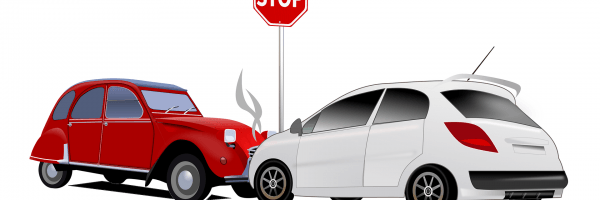Read Original Version (CLB5+) You are reading the Simple Version (CLB3-4) We have to take care of our planet because we only have one. It might seem hard to fix environmental problems, but we have to try. We need to make sure that the planet is healthy for the people who come after us. It can be tough to make big changes, so let’s start with small ones. Even small changes can make a big difference over time. Remember, every little bit helps! Here are 10 simple things you can do today to make a positive impact. When you brush your teeth, turn off the tap. This saves a lot of water. If everyone in your home does it, the savings add up. Taking shorter showers also saves water. It’s important to fix leaky faucets right away. If you wash your car, use a professional car wash because they use less water. Don’t overwater your plants if you start a garden. You can find more tips on how to save water here: 100 ways to conserve water by Ground Water Canada. There are simple ways to save energy. You can find more ideas for saving energy at home and work on Manitoba Hydro’s Energy Saving Tips website. To save money and energy, use light bulbs that are efficient. You can choose LEDs, which stands for light emitting diode. An eight or nine watt LED bulb gives off the same amount of light as a 60-watt incandescent bulb. If you’re not in the room, turn off the lights. If you’re not using your computer, turn it off. This will save energy. You should also turn it off at night. By doing this, you won’t need to use as much energy to recharge it. When possible, use batteries that can be charged again. To save energy, change the temperature in your home and office. Use a setting that saves energy. We need water, soil, and energy to make food. We also need fuel to move the food around. Studies show that it takes more resources to make animal-based foods than plant-based ones. So, it’s better for the environment if we eat fruits, nuts, whole grains, and vegetables that are grown nearby. You can still eat meat if you want, but try having one day a week without it. Throwing away food is bad for the environment. Half of all food waste happens at home. When we throw food away, it makes a gas called methane. Methane traps heat from the sun and makes the planet warmer. This can cause floods and forest fires. To help, we should store food properly, plan our meals, and shop smartly. For more tips on healthy eating and saving the environment, check out Canada’s Food Guide. You can plant trees in your backyard or join planting events. Trees help make the air we breathe fresh and healthy. They take in CO2, which is a gas that harms the environment. A young tree can take in 13 pounds (5 kilograms) of CO2 every year. When it grows up (in about 10 years), it can take in 48 pounds (21 kilograms) of CO2 every year. Trees also remove other harmful gases and particles from the air. You can help save trees by using less paper. Try using online versions instead of printing. You can also encourage your office to use less paper. To make less trash, remember the three R’s: Reduce, Reuse, Recycle. Don’t buy things you’ll throw away after one use. Instead, use things like paper, cloth, or plastic again. Put things that can be recycled in the recycling bin. You can learn how to sort your trash by reading Recycle like you mean it: More recycling do’s and don’ts. If you want to do more, try composting. This helps make less trash and gives you natural fertilizer for your garden. We should use less fuel or no fuel at all. Even if one car is not used, it can make a big difference. Biking and walking are good options because they also help you become healthier. If you need to go somewhere too far to walk or bike, try to share a ride with your friends or coworkers. You can also use public transportation. If you have to drive a car, make sure to take care of it. This means keeping your tires full of air and your engine in good condition. Doing this will not only reduce pollution but also improve your gas mileage by a little bit. Every year, eight million tons of plastic go into the ocean. This is a big problem because plastic doesn’t break down and hurts sea life. It also means we might eat seafood that’s not safe. We can help by using bags that we can use again and again. We should also avoid things with lots of plastic wrapping. We should not use things we throw away like plates, spoons, cups, straws, and napkins. Instead of buying water in a bottle, we can use a cup we can use again and again. We can fill it with water from the tap that’s been cleaned. This is better for the world and for our health. There are many ways to help the environment in your community. You can join cleanups and conservation efforts. You can also support causes that care about the environment. Another way is to collect recyclables. You can also teach others about the environment. The more people who help, the better it will be for the environment. If you can, buy used things like equipment, clothes, furniture, or appliances. It’s better to buy things that you won’t use for very long, like a bike for your child, second-hand. This will save money and reduce waste from packaging. If you buy things made nearby, it will help reduce pollution from transportation. It will also support local businesses and help the economy in your area grow. You can learn about how the climate is changing, how to take care of nature, how to recycle, and how to protect the environment. You can talk with others about how to help the environment and teach people why it’s important to take care of our natural resources. You can be a good role model for young people, like your kids, by doing what you say. You can also share this list with others and help make the world a better place! Many people want to know how COVID-19 and the environment are connected. Experts say there are many ways they are related. Changes to the land, globalization, and climate change can make diseases spread more easily. This is especially true for diseases that come from animals. These diseases are called “zoonotic” diseases. There is a lot of proof that shows that climate change and deforestation are making it easier for these diseases to spread. A new study found that places with more dirty air have more deaths from COVID-19. The world has problems that are affecting us. To fix this, we need to change our habits. The UN Environment Programme made a video to explain why we need to act now. You can watch the video to learn more about why it’s important to take action. Please login to tell us what you think.Skip to:
Save water
Conserve energy
Eat sustainably
Reduce food waste, Home & Family, Manitoba Association of Food Economists
Plant trees
Recycle
Carpool/Use public transit/Bike or walk
Give up plastics
Volunteer
Buy second hand/Buy local
Educate yourself and others
An additional note:
Article updated February 20, 2024.
Sources: 10 things you can do to help save the earth, Katie Lambert and Sarah Gleim, How stuff Works; Protecting our planet starts with you, US National Ocean Service; 50 ways to help the planet, 50 ways to help; and Composting, Eartheasy. Accessed February 21, 2020. Coronavirus: How environmental destruction influences the emergence of pandemics, Daina Goldfinger, Global News; and A message from nature: Coronavirus, UN environment programme. Accessed April 6, 2020.We'd love to hear from you!




